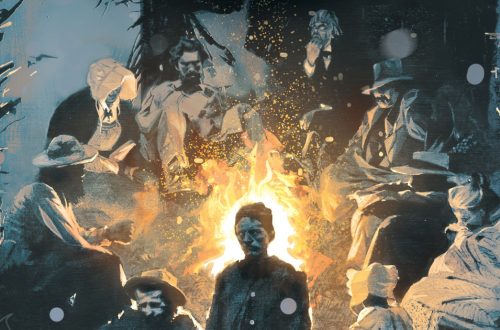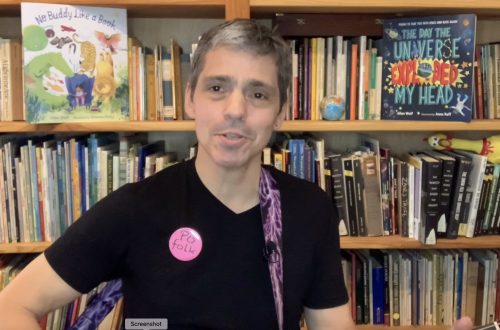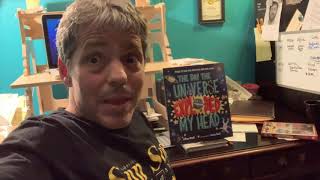The Princess, the Pea, and the Poemo sapien OR “Why don’t poets just say what they mean?”
Guest post via Nerdy Book Club
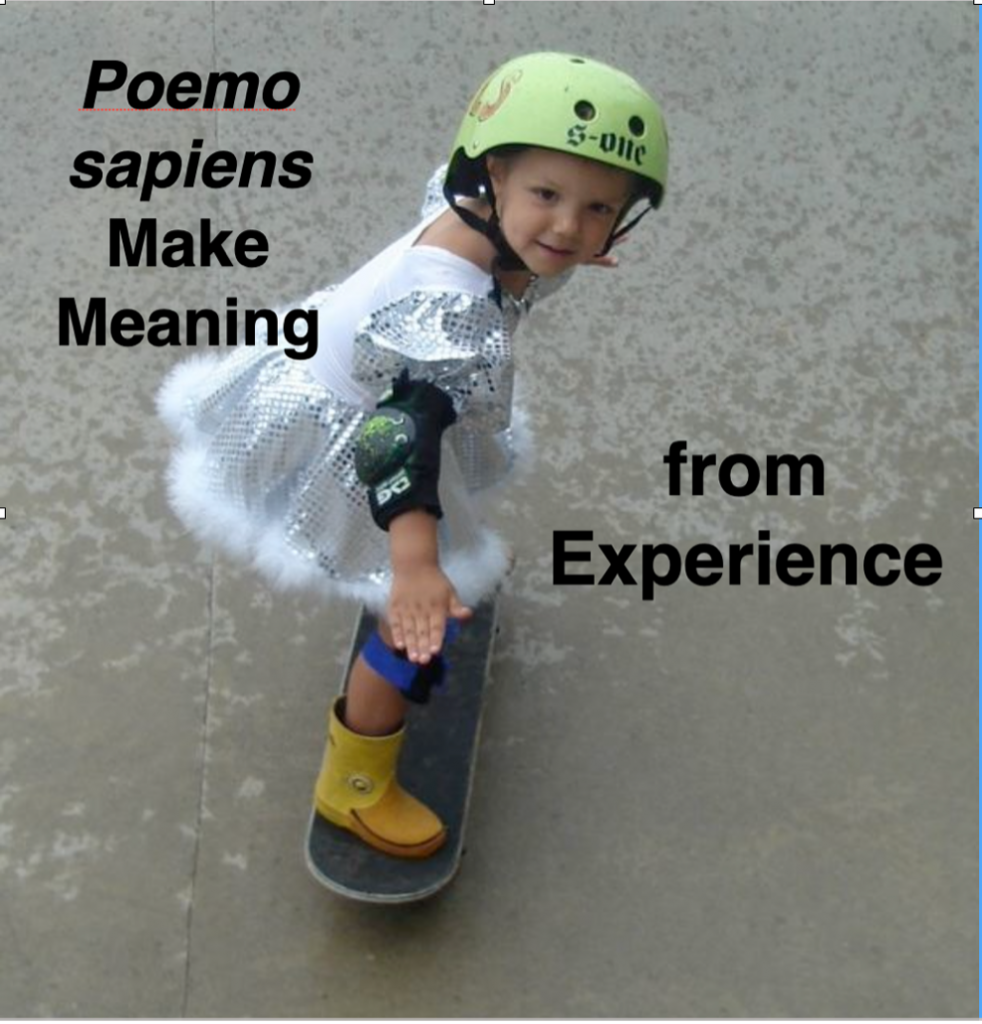
This is my third time in the guest nerd seat. In the past few years, I have confessed to being an adult-onset bibliophile. I have told the story of how I used to write on my bedroom walls. And I have admitted to being only a “5” on the Nerdometer Scale. I’m most excited about this post to celebrate National Poetry Month. Poetry is my jam. And my I am.
Allow me to quote two paragraphs from an interview with the wonderful Margaret Simons at Reflections on the Teche.
Since I first discovered rhythm when I was four years old (I remember it as if it was yesterday!), my thought process has lent itself well to poetry, metaphorical thought, rhythms, rhymes, music, story. And even before COVID, my brain was already a non-linear jumble of thought bubbles, with observations flying in and out, unbidden as birds.
Words give a poem sense, while the space between the words give it resonance. Poets can arrange words based on craft, style, and clarity, just as prose writers do. But poets don’t have to stop there. Poets can arrange words based on prescribed patterns . . . or not. Poets can even arrange words wherever the words instruct them too. Space is key. Space between words. Space between lines. You can even remove a word, like you would remove a superfluous wisdom tooth. Line-breaks can be purposefully clunky or smooth. When a line breaks, the words turn. The poem’s rhythm may also turn. The poem’s pace may turn as well. The reader’s eyes, heartbeat, and attention all turn. (Fun Fact: The word “verse” comes from the Latin, verso, to turn.)
The poet chooses
where
the lines break.
Water takes the shape of the empty glass,
as determined by dimensions.
Prose takes the shape of the empty page,
as determined by the margins.
But poetry uses space
like an actor on an empty stage
as determined by the poet
or sometimes the poet is left just to watch
as the poem tells itself what to do!
So, let’s leave prose behind a while.
A reader’s task should never be
to answer and explain what a poem means.
Rather a reader should experience the poem fully,
and thus, make meaning from that experience.
That meaning, in turn, saturates the atmosphere
so, it often enters through your skin
even before it reaches your brain.
I am a proud example
of the species, Poemo sapiens
Yawping barbarously
from atop some impressive mountain
or, at the very least, a chair.
I say, By taking control of the words that you use,
you take control of who you will be.
Seeing the world as if seeing it
for the very first time.
Transforming the ordinary
into the extraordinary,
or the other way ‘round!
Whenever I hear the question,
Why don’t poets just say what they mean?
I answer,
Why don’t stained-glass windows
just let in the light?
Listen up, po-folk, listen to me:
By taking control of the words that you use,
you take control of who you will be.

Remember the story of the Princess and the Pea?
On a dark and rainy night,
a mysterious girl knocks upon the castle door,
seeking shelter from the storm,
and when asked who she is,
she says (true to her word), “Princess.”
The queen of the castle is rightly suspicious.
She devises a test to place a small green garden pea
beneath the mysterious girl’s mattress.
Then, upon that mattress, the queen places twenty more!
The idea being this: If the girl is truly who she says,
she will certainly be able to feel that little green pea
even through all those distracting layers.
And in the morning, true to her word, the mysterious girl
repels down from her bed, black and blue,
and cranky from a bad night’s sleep.
In the story, that little green pea stands for the truth
of who the girl is: Princess.
And every mattress is another obstacle attempting
to distance the girl from her truth.

So, imagine your own little green pea,
glowing bright like an emerald of light.
Imagine written upon it, a word.
A word that declares who you are,
or maybe whom you aspire to be.
And no matter what obstacles are placed in your way
never lose your connection to the promise of that word.
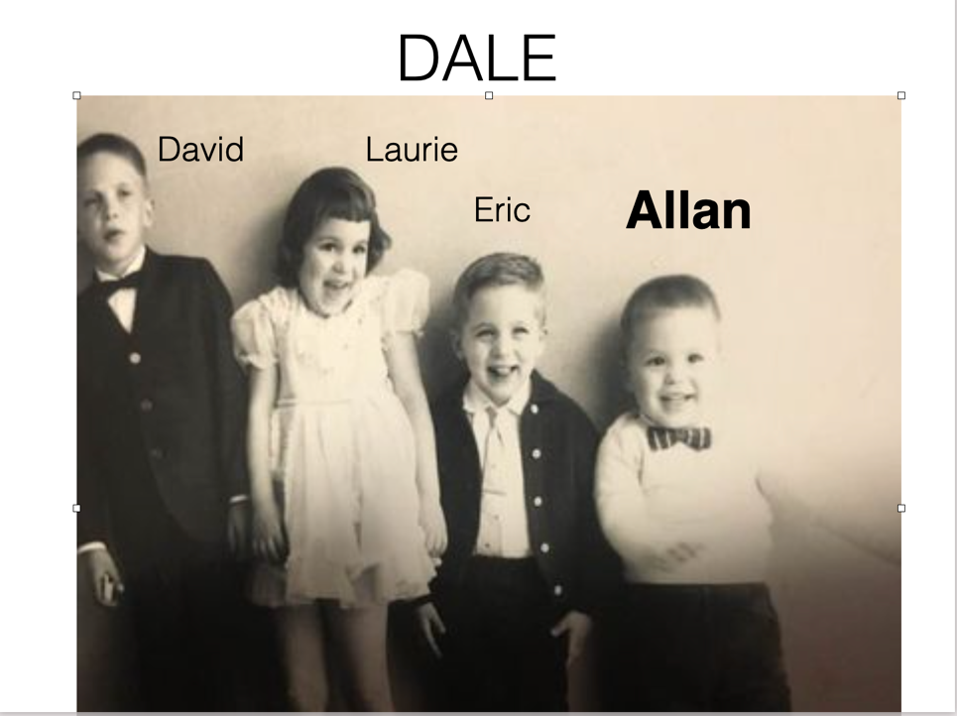
By taking control of the words that you use,
you take control of who you will be.
My Father’s name is Dale. D. A. L. E.
My mother and father had four children.
First was David. Next came Laurie. Then, Eric.
Finally, in the Spring of 1962 my father, a very smart man,
realized if he had just one more child, and named it an A name,
he would be able to spell his own name, Dale,
from the first letters of each of his children’s names.
And that’s why my parents had me . . .
because they needed an A.
I’m not making this up.
I was literally born a poet
in order to complete the letters of an acrostic poem.

I was given the name, Allan, because I was born.
I earned the name, poet, because I was myself.
The name you were given was someone else’s choice.
From here on out, the words you use to define yourself
are completely up to you.
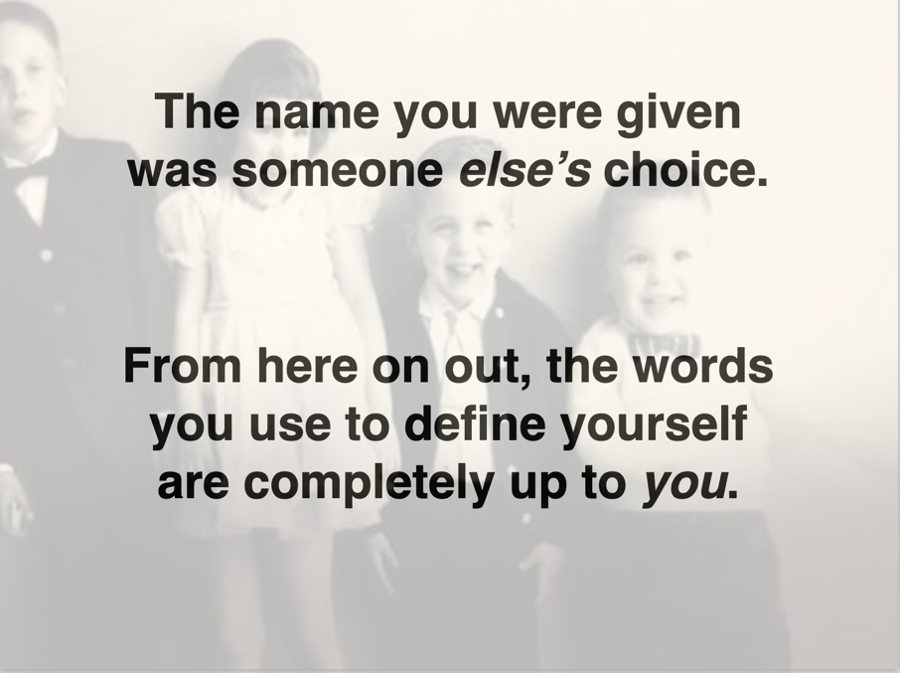
Remember the story of the Princess and the Pea?
We have gathered here in the Nerdosphere
to place a little green pea beneath the mattresses
of the unconscious sleepers.
Watch your world laying down lie after lie.
Watch everyone telling you who you should be.
Enemies, loved-ones, and media feeds.
Watch yourself lie awake all night.
Watch yourself in the morning face the black and blue truth.
You ask aloud, “What is this pea, that keeps me from my sleep?”
“That pea is who you’re truly meant to be,” the poets say,
“and it will not go away.”
The social-media circus lights shine into our eyes
as we lie on our couches and gaze at our screens
and we graze and we graze and we graze.
Remote news
from remote satellites
clutching out remote controls.
We control the channels and apps
but who is controlling us?
Allen Ginsburg cannot save us now no matter how he howls.
Langston Hughes has dried up like a raisin in the sun.
And no more Adrienne Rich diving into the wrecks
of what we have become.
But they left behind a baton of wisdom, poets.
Grasp it, now, with your own wise words
and help this world see
who you are right now
and the truth of who you’ll be.
Under what deceptive mattresses
will you find your pea?
By taking control of the words that you use,
you take control of who you will be.
